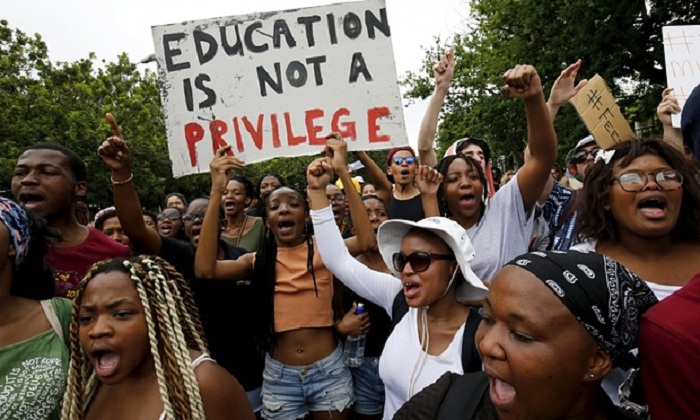It was the latest victory for increasingly militant students who complain that the country’s universities remain racist 21 years after the first democratic elections brought Nelson Mandela to power.
Students at Stellenbosch, about 30 miles east of Cape Town, protested that Afrikaans was the language of oppression and its use as the teaching medium disadvantaged black people.
“Since English is the common language in South Africa, all learning at Stellenbosch University will be facilitated in English,” the rector’s management team said in a statement.
It added that the university “remains committed to the further development of Afrikaans” as an academic language. The student pressure group Open Stellenbosch, which led the protests, welcomed the statement.
“The radical change from [using] Afrikaans as the primary tool for oppression and exclusion, to adopting a language shared by all as the official language, is a significant victory in this struggle for access to education,” the movement said in a statement.
“We remember those who died for this to become possible in the long years of struggle against apartheid. In particular, we remember the students of 1976.”
In that year, black high school pupils in Soweto rebelled against attempts to introduce Afrikaans as the medium of instruction, an uprising seen as a major turning point in the fight against apartheid.
The Stellenbosch victory comes hard on the heels of two other student triumphs this year.
At the University of Cape Town, protesters forced the removal from the campus of a statue of British colonialist Cecil Rhodes, protesting that it was a symbol of white oppression and continuing racism.
Last month, nationwide demonstrations forced the government to scrap plans for a university fee increase next year, which would have hit poor black students particularly hard.
More about:
















































